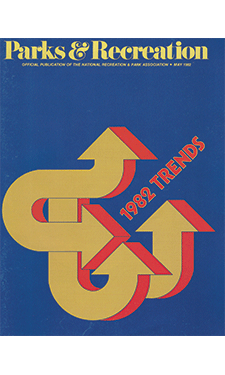 In this issue of Parks & Recreation magazine, we’re pleased to feature an Advocacy column penned by Utah Rep. Rob Bishop, who uses the space to explain why the U.S. Bureau of Land Management (BLM) would do well to give greater control of its recreation areas to the localities in which they’re found. He explains this in the context of the Land and Water Conservation Fund (LWCF), up for renewal this year, which has seen a steady increase of fiscal allocation to its federal land acquisition side, while the State Assistance Program, as of 2013, received just 13 percent of those funds.
In this issue of Parks & Recreation magazine, we’re pleased to feature an Advocacy column penned by Utah Rep. Rob Bishop, who uses the space to explain why the U.S. Bureau of Land Management (BLM) would do well to give greater control of its recreation areas to the localities in which they’re found. He explains this in the context of the Land and Water Conservation Fund (LWCF), up for renewal this year, which has seen a steady increase of fiscal allocation to its federal land acquisition side, while the State Assistance Program, as of 2013, received just 13 percent of those funds.
Bishop opens his piece with a shocking anecdote (I’ll leave it to you, dear readers, to turn to Page 27 to read this real-life horror story) meant to illustrate why updating the LWCF to allow cities, counties and states greater management of federal land within their jurisdictions, as well as providing robust funding for the State Assistance Program, could have significant impacts.
Travel with me back to May 1982, when the “News Focus” section of Parks & Recreation magazine was making similar pleas in its recap of testimony before the Subcommittee on Interior and Related Agencies of both the House and Senate Committees on Appropriations by then-NRPA Public Affairs Director Barry S. Tindall. As today, in 1982 talk of eliminating the LWCF was on the lips of policy-makers in Washington, D.C., and Tindall rose to the challenge of explaining why that program is so essential, as well as why municipal entities should play a role in its administration. Tindall also addressed budgeting concerns related to the Urban Park and Recreation Recovery (UPARR) program and the Historic Preservation Fund.
At the time, then-President Ronald Reagan was barely more than a year into his first term, and his now-trademark policies of debt reduction and government decentralization via “New Federalism” were in their infancy. The former is the Ghost of Christmas Future of today’s cut-focused federal budgeting process, while the latter was intended to transfer certain powers from the federal government back to the states — a reaction to President Franklin Roosevelt’s “New Deal” policies of old.
Tindall was made to perform a neat juggling act, simultaneously explaining why localities should have a significant role in administering LWCF monies (an ovation tracking nicely with the New Federalist ideal of giving greater control to the states) and decrying the Reagan administration’s embrace of New Federalism, saying the policy, “ignore[s] completely the subject of recreation and parks in an intergovernmental context.”
Tindall’s testimony included six factors for consideration of why the LWCF, UPARR and Historic Preservation Fund should be continued and nurtured by parties both local and federal: “(1) Comprehensive state and local park systems appear to ‘absorb’ a significant number of recreation user pressures that, if not directed to nonfederal parks, could exert extreme pressure (and cost) on federal recreation resources. (2) Nonfederal recreation resource systems meet a variety of interstate and regional demands...(3) The states and local governments have demonstrated a continuing commitment to participate in all of the ‘threatened’ programs, despite serious program disruptions in each of the past two fiscal years. (4) Administration statements ‘that the states (and local governments) cannot effectively use’ LWCF and UPARR are based upon ignorance of the programs’ status or a deliberate attempt to mislead the Congress and others. (5) Recreation and park systems play an increasing, not diminishing, role in American society that relates to an array of social, economic and environmental values. (6) The LWCF, especially, provides an extremely effective vehicle for redistributing fiscal resources accruing to all citizens through accelerated Outer Continental Shelf (OCS) energy extraction activities...”
In light of Tindall’s testimony and Bishop’s thoughts herein, it seems fitting to paraphrase ol’ Dutch during his 1980 debate with President Jimmy Carter; “Here we go again…”
Samantha Bartram is the Associate Editor of Parks & Recreation magazine.

